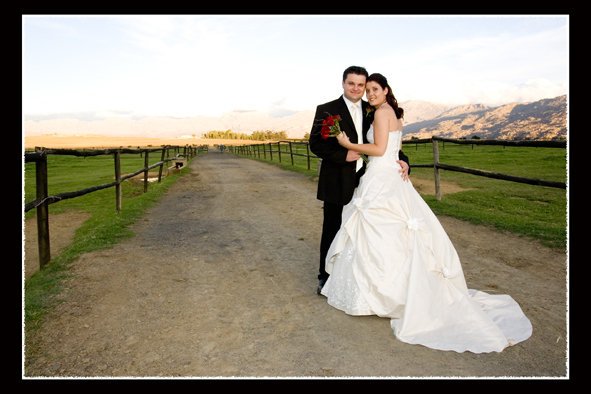In this post, we’re considering the question, is marriage a covenant and if it is, what would that mean for a couple’s relationship?
Before looking at this question and breaking it apart for our understanding, let me be completely transparent in saying that on this topic I might be slightly biased.
Firstly, I grew up in a very specific place and time where marriage has always been seen as more than just a legal contract between two people.
Marriage is a covenant before God and between two people, according to many couples’ beliefs where I’m from.
That particular belief lays a very specific foundation and usually creates a different set of dynamics for our couples dating life all the way to marriage and beyond.
However, in saying that, this does not imply that I hold all of the same beliefs 100% any longer.
In many ways, my view of life and “whatever’s beyond” have evolved.
So, please, this post is merely a reflection of ideas, not necessarily a testimony of my personal views.
Secondly, my wife and I have been together happily for over 16 years so we know what it takes mentally, emotionally, and commitment wise to face and conquer the ebbs and flows of marriage.

Without jumping the gun here, I can tell you without a shadow of a doubt that unless you see marriage as more than just a legal contract between you and your spouse, and nothing more, the likelihood of displaying the commitment required when the going gets tough might lack when it’s needed most.
It is during these times that holding onto the covenant you’ve made to each other and a higher “power”, regardless of what you want to call it, makes a huge difference because you’re accountable to something much greater than just a contract on paper.
So, what all of that said, like many other people, I also believe that marriage isn’t just about romance and feeling positive all the time, and here is why.
Instead of basing the cohesiveness of your relationship on the “True Love is all we need and will keep us together” myth, the real secret to making a marriage work has nothing to do with that.
Your marriage is not built on “the romance myth” found in song and movie fairytales, but instead on the sacred promise of “enduring covenant love” beyond romantic feeling, affection or attractiveness.
According to the apostle Paul (biblical new Testament), there is a particular kind of love that a wife is called to offer her husband in a covenant relationship (Ephesians 5:24).
In the same breath, he also teaches that if a Christian husband (or any other husband for that matter) does not understand the “kind of love” he is called to offer his wife, he is setting his marriage up for failure (Ephesians 5:25).
Now, I’m not going into the translation and theological aspects of these passages, but it does suggest a specific biblical concept about marriage and provides important covenant marriage information for a couple.
In essence, the kind of love that a wife is called to offer her husband has much more to do with sacrificial and self-sacrificing actions, rather than putting the husband’s well-being and priorities above his own, as is commonly misunderstood.
In both cases, the “unselfishness” involved is understood as a self-sacrifice for the well-being of one’s spouse.
Moreover, husbands are called to follow the example of the great ancient rabbinic teacher, Jesus (Yeshua), of how he used his life to serve the “Ekklēsia” (Greek, assembly or gathering of people).
Husbands, in other words, are called to use their life to advance the interests of their wives and family.
These ideas are a powerful biblical truth that when understood correctly can lead to powerful wedding vows, potentially combat marital unfaithfulness, impact disheartening divorce rates, and create marital bliss long term.
What is a Covenant Marriage?
Is marriage a contract or a covenant is a question that many people seem to wonder about.
Fundamentally, according to the ancient biblical scriptures, marriage is seen as a sacred vow and solemn binding agreement between a man and woman, to “become one flesh”.
According to these ancient ways, the Creator’s view of marriage is the sacred plan for sexual relationships, to secure stable families and committed parents and spouses.
Following this perspective, one can quickly see that a covenant marriage is more than just about buying a wedding ring, organising the wedding ceremony, getting wedding pictures taken, slicing the wedding cake, and going on a honeymoon.
One can argue that when people choose covenant marriage, it is essentially about two people committing themselves to each other and in a sense adopting a shared identity and building a life together on that foundation.

The great thing about this relationship is that it can be strengthened and sustained by the couple’s mutual love and respect, companionship, shared values, common goals, and joint interests.
Now, as an ex-wedding celebrant, I’ve officiated many weddings in my life and I can tell you that I’ve seen both types of couples – some who understood the significance and magnitude of their unconditional covenants to each other and those who did not.
Sadly, with some of these couples, time did make that evident with some marriages not going the distance for various reasons.
A covenant marriage, according to Dr Wyatt Fisher of drwyattfisher.com, is one in which both parties are committed to one another and the relationship long-term, despite seasons of struggle and pressure.
When things are tough in the marriage, rather than giving up, both couples fight harder to make things better.
Dr Fisher also distinguishes between a contract marriage, which he defines as what the majority of couples now have without realising it.
He claims, and I agree, that in a contract marriage, your commitment is solely dependent on your emotions.
A contract marriage (compared to a covenant marriage) basically states, “I am committed to you as long as my needs are met and I am in love, but the moment my wants are not met and I am not in love with you, divorce becomes a viable option.”
As I mentioned before, the issue with the contract approach is that feelings ebb and flow, which implies that a marriage founded on that foundation can (and will) follow suit.
When a couple is happy, their marriage will be wonderful, but when they are unhappy or battling, their marriage will be awful, if not ended.
But this is where a covenant marriage differs.
It is not based on how a couple feels because emotions are faint and unstable.
Instead, the covenant viewpoint regards marriage as a lifetime commitment, even a holy pledge, independent of emotional ups and downs.
This is seen in Jesus’ instructions on divorce in Matthew 19.
He begins his teachings with the question, “Haven’t you read that the Creator created them male and female at the beginning?” (Matthew 19:4)
Then, to emphasise his case, he quotes Genesis 2:24: “A man leaves his father and mother and is married to his wife, and they become one flesh.” (Matthew 19:5)
However, the final paragraph of Jesus’ instructions is intended squarely at people who believe that by establishing an escape clause, they may prevent the anguish and suffering that divorce will bring.
According to Jesus’ response to this worry, people are not escaping, but rather fleeing away from life’s challenges and difficulties: “But I say to you that anyone who divorces his wife, unless for unchastity, makes her an adulteress, and everyone who marries a divorced woman commits adultery.” (Matthew 19:9–10)
Now, you don’t necessarily have to agree with that, nor do we hold similar cultural standards nowadays, but there is some merit in the notion that many couples do seem to want to divorce at the first sign of difficulties, in other words, run away.
But a covenant marriage is a union of one flesh.
When you have that understanding, undoing “one flesh” isn’t that simple.
Additionally, it must be an intimate, trustworthy relationship with constant communication.
This type of relationship should foster trust and transparency rather than mistrust and distrust.
Husbands must have faith in their wive and communicate their difficulties to their wives.
Even if they are struggling with something that is not an issue for the wife, husbands must communicate their concerns with their wives, especially the unpleasant topics.
The husband must also share his joy with his wife.
Conversely, wives must also honour their husbands and show them the type of respect that allows their husbands to feel confident, proud, and causes them to lead from the front while displaying affection and kindness.

Of course, if you don’t read the Bible or believe in any of this religious nonsense, you may ask if any of this still applies to you.
And, if it does, what are the advantages of a covenant marriage?
Personally, I feel that you should not dismiss the important marriage ideals included in these ancient teachings simply because you are not religious.
You don’t have to be religious to appreciate wisdom or sound judgement when you see or hear it.
Naturally, we live in a different society and culture, and our perception of the world has changed significantly in comparison to individuals who lived 2 to 3000 years before us.
That should go without saying.
As a result, we have a different perspective on relationships, marriage, and even divorce.
That’s perfectly fine.
We are also much more welcoming of other forms of relationships than we were previously, which is fantastic.
However, the thing I want to emphasise here is not so much whether you believe in the ancient ways or not, but whether you can recognize the fundamental principles of a covenant marriage and how they might affect your attitude to your relationship in the twenty-first century.
Covenant marriages, for example, regard promises as more than just a piece of paper or a legally enforceable contract.
People make unconditional promises to one other in the context of covenant partnerships, even when worse conditions befall them.
The least of which is when one of the partners changes.
The idea is that there appear to be advantages to seeing marriage as a type of covenant or sacred promise rather than merely a significant commitment, though that is certainly a component of it.
So, what are some of those advantages?
Let’s take a brief look at a few.
Benefits of a Covenant Marriage
It provides psychological, emotional and physical certainty
People don’t seem to regard commitments as much as they used to in today’s world.
A covenant marriage is one in which the couple commits to staying together no matter what.
That means no divorce, no sexting, and no extramarital affairs.
Again, the first advantage of the covenant approach to marriage, according to Dr Fisher, is that it creates security.
To put it another way, when our marriages are based on an undeniably strong foundation of commitment, it provides psychological, emotional, and physical security.
That is significant because when we feel safe, we become more authentic and transparent.
As a result, increased openness and safety leads to increased emotional intimacy, which leads to increased sexual activity.
I’m not sure about you, but whether you’re religious or not, having high levels of emotional intimacy and sexual activity because you feel psychological, emotional, and physical safety in your relationship sounds like something every couple would want.
It provides a safety mat
According to Dr Fisher, a second advantage of the covenant approach is that you will handle problems much better than if you were in a contract marriage.
What he claims is that couples who are unconditionally committed to each other and don’t even consider leaving the relationship, no matter how difficult the season is, or handle conflict better than a couple who has no problem threatening the relationship with divorce when things get too complicated.
He refers to this as the “winter season,” and all couples go through it at some point.

However, he contends that couples who have made a covenant with each other (and their Creator) are more inclined to see things through than those in a “contract” marriage.
Now, whether this notion is supported by research is debatable, but one may respect the sentiment.
We do know, for example, that some psychologists report that a higher level of commitment is a significantly better predictor of lower divorce rates and fewer marital issues.
Furthermore, psychologists have discovered that couples who are prepared to make sacrifices within their relationships are more effective at problem-solving.
However, one could argue that only couples with a higher level of commitment are more likely to be willing to make sacrifices within their relationships, which will lead to more effective problem-solving, which will lead to higher levels of psychological, emotional, and physical certainty, which will lead to closer emotional intimacy and increased sexual activity.
It provides an opportunity for personal growth
Again, according to Dr Fisher, the third advantage of a covenant marriage is personal growth.
He believes that when you face difficulties in a covenant marriage, they become opportunities to build your character.
For example, if a guy is having difficulties in his marriage because he hasn’t yet learned how to share power, knowing how to share power can help to refine his character and better him as both a man and a spouse.
It is only natural that when you go through life’s hardships, you will learn what is most important to you and what your values are, and it will also assist you to have a better understanding of yourself as a person.
As a result, it assists you in becoming a better person, which can improve your relationship with your spouse.
In that sense, a covenant marriage, while involving a lifelong commitment, also serves as a platform for individual personal growth.
Again, you do not have to be religious to benefit from this.
A Life-long Covenant, a Commitment
You would have heard me use the word “lifelong commitment” a couple of times up to this point.
The question then becomes, what exactly does that entail in the context of a covenant marriage?
More significantly, what are some of the practical ramifications for you as a couple, and how might this affect your relationship?
According to an article on Focusonthefamily.com, when a person says, “I am committed to my marriage for life,” it means that the couple believes, among other things, that marriage was created by God and is meant to be honoured by everyone (Hebrews 13:4) marriage is permanent, and divorce is not an option.
Marriage is one of the most important parts of their lives, therefore they love one other, invest in their relationship, and are prepared to go to any length to make it work.
In other words,
- marriage is regarded as a priceless gift,
- love is a decision rather than a transient emotion,
- partners truly appreciate and enjoy their marriage relationship, and
- commitment is primarily concerned with taking active steps to maintain a marriage.
Now, I know I’m being redundant, but whether you’re religious or not, embracing just these four perspectives in your marriage has the potential to make a significant beneficial impact on its overall quality, don’t you think?
Consider the impact on the quality of your relationship with your spouse if you began to see your relationship with them as a priceless gift, your love was a daily decision regardless of how you felt on the day, you constantly did enjoyable things together as a couple, and you consistently demonstrated how important your marriage is to you by proactively investing time and money to make it better.
Consider the difference.
Now, I know some of you would remark that this sounds impractical, if not impossible.
But that doesn’t change the fact that a significant number of couples could significantly enhance their marriage relationship if they simply started thinking about it in this way.
We must now consider and discuss the elephant in the room: divorce.

Overall, society has become more accepting of the idea of divorce, and divorce rates have risen in recent years for a variety of reasons.
The issue for us to consider briefly is how we should view divorce in the context of covenant marriages.
Because no one in their right mind would claim that staying in an abusive, toxic, unsafe, unhappy, or “dead” marriage is a reasonable or wise decision.
I wouldn’t.
So, what are the most frequent permissible reasons for quitting a covenant marriage?
Limited Reasons for Leaving a Covenant Marriage
Adultery, abuse, and abandonment are the three exceptions to divorce in a covenant marriage.
In addition, persistently rejecting your partner’s top needs and refusing to change could be deemed as neglect, fall under the abuse umbrella, and be grounds for divorce.
Even if one of these things happens, healing is still possible provided there is complete remorse and reform.
However, doing so is frequently difficult, if not impossible.
It’s much easier to simply leave.
In the same breath, however, my experience has taught me that outsiders rarely have enough insider information to make an informed judgment on why a couple’s relationship ended.
Many couples have tried everything to reconcile with each other and get their relationship back on track, but have been unable to do it in the end.
The reality is that things change, and sometimes, despite our greatest efforts and intentions, we simply cannot achieve the outcome that our hearts and minds desire.
It is critical to learn to accept this.
Because, as beautiful and inspiring as successful covenant marriages can be for others around them, unhappy spouses who refuse to accept the reality of their circumstance can create a lot of suffering and heartache for themselves and those around them.
Finally, I believe that it is not required to be a member of any religious denomination to practise covenant marriage.
It’s simply a matter of identifying your beliefs, finding someone who shares them, and making it work for you.

